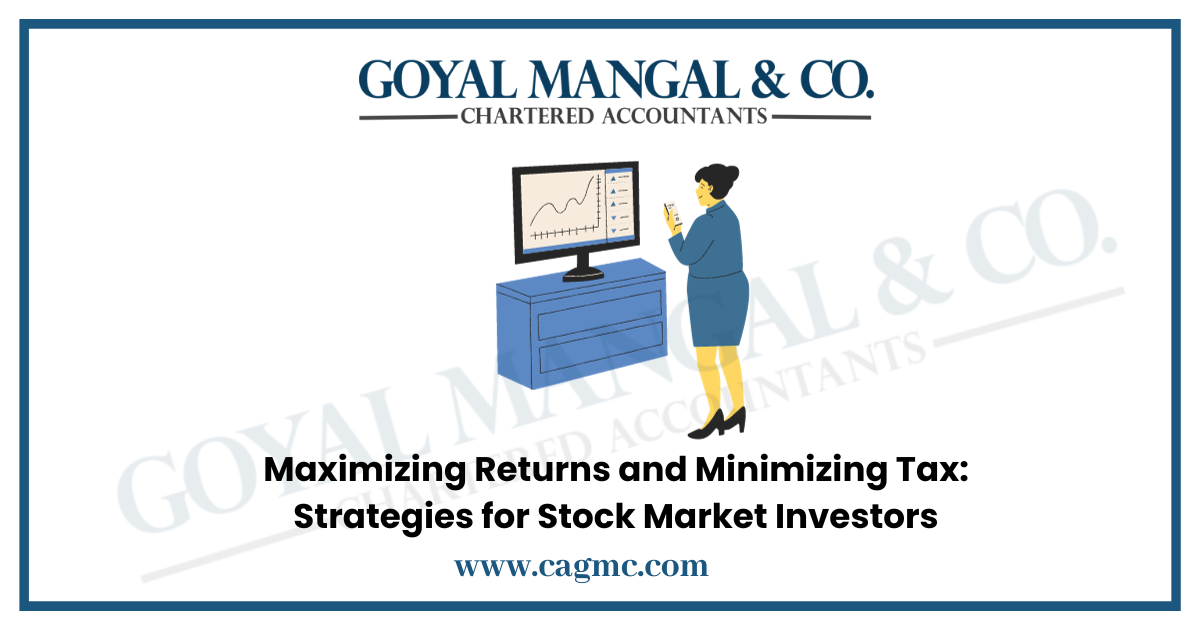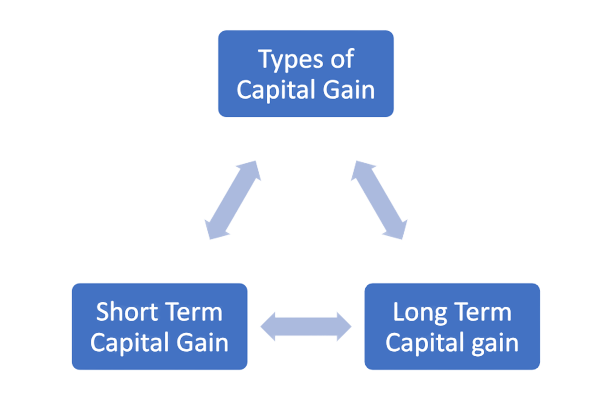
Strategies for Stock Market Investors and traders in the stock market may have inquiries regarding the taxation of their revenue derived from the sale of shares. Individuals aim to minimize their tax liability and avoid possible penalties from tax authorities due to inaccurate income reporting. This article seeks to clarify the process for computing income tax on stock market income as well as define the laws and exemptions governing multiple kinds of income derived from shares.
Table of Content
What are the various categories of income derived from share?
There are two types of income derived from shares:
- Capital Gains: When you buy and sell stocks, you can either make a profit or a loss. This selling and buying of stocks leads to profit and losses known as capital gains. If you sell quickly after buying, it’s called short-term gains. If you hold onto them for a longer time, it’s called long-term gains.
- Business income: Some people trade stocks regularly as a way to make money. They watch stock prices carefully and aim to make a profit. There are two kinds of this: one is more like betting (speculative), and the other is like a regular business (non-speculative).
Types of Capital Gain on Shares
- Short-Term Gains: Short-term capital gains are like quick wins. If you buy and sell stocks within a year and make a profit, that’s short-term gain. For example, if you bought 100 shares of a company for Rs. 100 each in January and sold them for Rs. 120 each in June of the same year, you’d have a short-term gain of Rs. 2,000.
- Long-Term Gains: Long-term capital gains are when you hold onto stocks for over a year before selling them. It’s like a patient investment. For instance, if you bought 100 shares at Rs. 200 each in January and sold them for Rs. 250 each in February the following year, you’d have a long-term gain of Rs. 5,000.

Types of Business Income from Shares
- Speculative Trading earning: Speculative business income is like making quick moves in the Strategies for Stock Market Investors. It’s when you buy and sell stocks all in one day, hoping to make a profit. For instance, imagine you buy 100 shares of a company for Rs. 300 each in the morning and then sell them for Rs. 320 each before the trading day ends. In this case, you’d have earned speculative business income of Rs. 2,000. It’s all about trying to make a quick buck by taking advantage of daily stock price changes
- Non-Speculative Business Income: Non-speculative business income refers to the earnings derived from the trading of shares, excluding intraday trading, wherein shares are held for duration beyond one day. As an illustration, the acquisition of 100 shares of LMN Ltd. at a unit price of Rs. 400 on April 1, 2023, followed by their subsequent sale at a unit price of Rs. 420 on April 15, 2023, would result in a non-speculative business income of Rs 2000.
How are profits from the stock market subject to income tax?
The Strategies for Stock Market Investors taxation of stock market income depends upon the type of usage of shares made by the person and the period of sale. The profits from stock market revenue can be classified as capital gain or business incomes depend on the categorization as mentioned above.
The share market income tax of capital gains is mentioned below:
- Irrespective of Individual Tax Slab, Short-term capital gains (STCG) are taxed at 15%.
- Long-term capital gains (LTCG) are subject to a uniform tax rate of 10%, provided that they surpass the threshold of Rs. 1 lakh during a given fiscal year. Long-term capital gains (LTCG) of up to Rs. 1 lakh are eligible for tax exemption.
- The utilization of indexation for the computation of long-term capital gains (LTCG) derived from equity shares does not yield any advantages.
- Capital gains from equity shares are not subject to tax deduction at source (TDS). The determination of capital gain involves subtracting the acquisition cost and the costs associated with the transaction (such as brokerage fees, stamp duty, etc.) from the proceeds of the sale.
Share market Taxation on Business income:
- The person has to pay taxes on Speculative business income as per their tax bracket.
- The amount of tax you pay on non-speculative business income depends on your tax bracket.
- You can claim exemptions for the costs you had to pay to run your business in order to make money, like brokerage fees, internet fees, software costs, and so on.
- You have eight years to use up all of your non-speculative business losses before they are taxed again. You can also use them against any other income except salary income.
- When we sale shares and treat them as business income then the business income can be derived by deducting the sale price from purchase price and also deducting any cost related to that sale such as brokerage. This gives you the business’s income. for Strategies for Stock Market Investors.
How do you disclose earnings from the stock market on your income tax return?
It is necessary to disclose one’s stock market earnings in the income tax return, that is income tax on share trading, & one should know how to calculate tax on share trading, by categorizing them appropriately within the designated sections and schedules.
- In the event that an individual possesses equity shares and has generated capital gains from them, it is imperative to disclose and document such gains within the designated section titled ‘Capital Gains’ in either Schedule CG of ITR-2 or ITR-3.
- In the event that an individual possesses business income derived from equity shares, it is imperative to disclose such earnings within the category of ‘Profits and Gains from Business or Profession’ inside Schedule BP of the Income Tax Return Form-3 (ITR-3).
- Additionally, it is necessary to disclose the specific particulars pertaining to one’s transactions involving equity shares in Schedule EI of either ITR-2 or ITR-3.
- In order to facilitate the movement of funds overseas or the transfer of shares between residents and non-residents, it is mandatory to submit Form 15CA and Form 15CB when the transaction amount exceeds INR 5 lakhs.
- Form 10BA enables individuals to seek deductions for expenses paid in relation to stock market activities.
- Forms 64D and 64C are required to be utilized for reporting dividends that above INR 5,000.
Tax-saving Techniques for Investing in the Stock Market
Tax planning is a fundamental aspect of wealth management, particularly in relation to generating income from the stock market. Various tactics can be utilized to mitigate tax obligations and decrease liabilities.
- One potential strategy for reducing tax liability is to invest in Equity-Linked Savings Schemes (ELSS), which offer the opportunity to claim tax deductions under Section 80C of the Income Tax Act, 1961
- Optimization of Holding Period: The strategic decision to hold equities for a duration exceeding one year might potentially lead to the realization of reduced stock market tax rates on long-term capital gains.
- Systematic Transfer Plans (STPs) facilitate tax-efficient portfolio rebalancing by enabling the transfer of funds from debt funds to equity funds.
- Tax harvesting is the strategic utilization of capital losses to offset capital gains, so effectively minimizing tax obligations.
- Dividend Reinvestment Plans (DRIPs) offer investors the opportunity to reinvest their dividends into the market rather than receiving them as cash payments, so allowing for the deferral of tax obligations.
Final words
A comprehensive understanding of the tax’s principles related to income earned from stock market investments is necessary for investors to ensure compliance with regulatory requirements and maximize their financial gains. Investors can optimize their stock market investments by carefully evaluating tax-saving measures and honestly disclosing their income.


